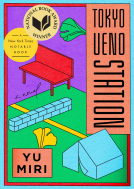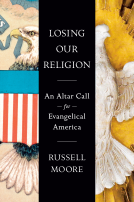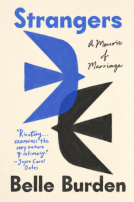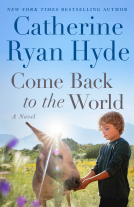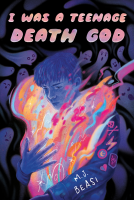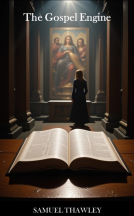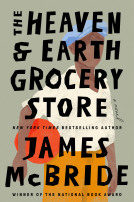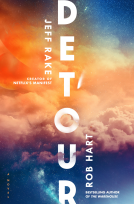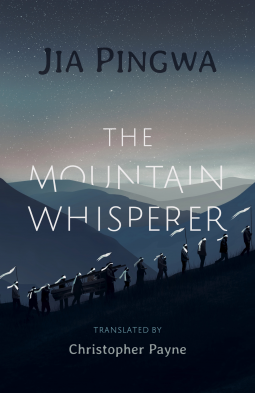
The Mountain Whisperer
by Jia Pingwa (author), Christopher Payne (translator)
This title was previously available on NetGalley and is now archived.
Send NetGalley books directly to your Kindle or Kindle app
1
To read on a Kindle or Kindle app, please add kindle@netgalley.com as an approved email address to receive files in your Amazon account. Click here for step-by-step instructions.
2
Also find your Kindle email address within your Amazon account, and enter it here.
Pub Date May 28 2021 | Archive Date Jul 15 2021
Alain Charles Asia Publishing | Sinoist Books
Talking about this book? Use #TheMountainWhisperer #NetGalley. More hashtag tips!
Description
Modern master Jia Pingwa’s novel which retells the turbulent birth of modern China from its rural margins. High in the mountains of central China a dying funeral singer tells four interweaved tragedies of all-too-human players caught in the earthly struggles of revolt and reform, and the mythic cycle of avarice, vengeance and suffering.
TIME IS A THIEF, BUT NOT DEATH
In a cave high in the ageless mountains of China’s desolate interior, an ancient funeral singer awaits the end. From his deathbed he gives voice to the generations of villagers to whom he devoted his life’s work, and four all-too-human souls whose struggles defined an era.
A soldier, a peasant, a revolutionary and a politician. When revolt and reform take hold of the wartorn plains, all play their debased roles in the mythic cycle of avarice, vengeance and suffering.
As his four tragedies interweave, the cracked lips of the dying sage conjure a stark vision: a retelling of the forging of the People’s Republic – from turbulent birth to absurd reversal – whispered from its uncharted margins.
About the Author
Jia Pingwa (1952- ) stands with Mo Yan and Yu Hua as one of the biggest names in contemporary Chinese literature. A prolific producer of novels, short stories and essays, he has a huge following on the Chinese mainland, as well as in Hong Kong and Taiwan. An early English translation of his 1988 novel Turbulence by Howard Goldblatt won the Mobil Pegasus Prize for Literature. In 1997, his 1993 bestseller Ruined City was first published abroad in French as La Capitale déchue (Abandoned Capital), translated by Genevieve Imbot-Bichet. It was published in English translation in January 2016, again by Howard Goldblatt, this time as part of the Chinese Literature Today Book Series. Happy Dreams, translated by Nicky Harman, and The Lantern Bearer, translated by Carlos Rojas, were published in 2017.
Jia Pingwa's fiction focuses on the lives of common people, particularly in his home province of Shaanxi, and is well-known for being unafraid to explore the realm of the sexual. Ruined City was banned for many years for that same reason, and pirated copies sold on the street for several thousand yuan apiece. The novel was finally unbanned in 2009, one year after Jia won the Mao Dun Award for his 2005 novel Shaanxi Opera.
Available Editions
| EDITION | Ebook |
| ISBN | 9781910760703 |
| PRICE | £4.99 (GBP) |
Average rating from 22 members
Featured Reviews
 Neil G, Reviewer
Neil G, Reviewer
This is the second of Jia Pingwa’s novels that I have read, the other being Broken Wings. Both came to me as ARCs from the publisher Sinoist Books/Alain Charles Asia, for which I thank them. As I was approaching the end of The Mountain Whisperer, I was fortunate to be able to join an online event organised by Sinoist Books in which both the author and the translator of this English edition (Christopher Payne), along with other presenters, talked about Jia’s work in general and this book specifically. Some of what I have included below is based on notes I made during that event.
This review is not so much about the contents of the book, but more about some of the things I learned about as I read it and during the event I attended. I hope these will give a flavour of what Jia is doing in this book and maybe encourage a few people to take a look.
The Sinoist Books event was titled “Jia Pingwa: Master Storyteller of Rural China” and it’s certainly true that the two of his books that I have read have used rural China as a setting to reflect on wider issues. During the event I attended, Jia said ”Only by understanding its rural countryside can we truly understand China”.
The Mountain Whisperer is told via four tales. In an introductory section we meet the titular Mountain Whisperer. This is an anglicised term for a funeral singer whose job is to attend funerals and sing for the dead. As the funeral singer lies dying in a cave, he relates four stories that cover four major periods in 20th century Chinese history. The website paper-republic.org summarises it like this:
"A historical allegory told through the framework of dying funeral singer, …, Jia Pingwa weaves together four tragedies of the 20th century China: revolution, landlord classicide, Great Leap, and economic reform. While each promised new opportunities and a dramatic break with the past, particularly for those on the bottom rung of the social ladder, each ended up victimizing a new group while empowering another."
Different parts of the book are prefaced by nine excerpts from ”Pathways Through the Mountains and Seas”. This is a collection of legends about different mountain ranges in which the different mountains in a range are listed along with their characteristics (minerals, fabulous animals, flora etc.). The way this reference book lists one mountain after another inspired Jia, he says, to write about one village after another. At chinadaily.com.cn, I read ”Chinese Writers' Association critic Li Jingze says the unique structure demonstrates Jia's understanding of the relationships among history, literature and memory. There is an interesting article here about this last point: https://www.worldliteraturetoday.org/2018/january/memory-literature-and-revised-history-conversation-jia-pingwa-min-yang.
One of the most interesting things that Jia said during the event I attended was ”When viewed from the macro, the form of the novel develops in sync with developments in Chinese literature”. I don’t know enough about the history of Chinese literature to comment fully on that. For me, the differences between the four parts felt rather subtle and I am not sure whether something of this idea has maybe been lost in the translation. That said, the different sections do have different feels to them. I found the third tale, for example, quite difficult to maintain focus and I think this is because this section seems to suddenly include a lot of characters to keep track of whereas the other sections are more focused on smaller groups.
That said, the book as a whole does a great job of presenting a perspective on the last 100 years of Chinese history. If this is something that interests you (it does me), it is a fascinating book to read (although be prepared for some fairly gory death scenes!). The focus might be rural communities, but it doesn’t take much reading between the lines to see what is happening in the wider culture in each time period. And it has a bizarrely prescient ending!
 Sabrina B, Reviewer
Sabrina B, Reviewer
In this book we listen to the tales of the mountain whisperer, an ancient funeral singer, in a cave awaiting his own death. He tells stories of the villagers whose lives and deaths made up his work and we follow 4 main stories from different periods during the Chinese communist revolution whose struggles defined an era.
A soldier, a peasant, a revolutionary and a politician. Their stories are linked together to conjure a remarkable exploration of the forging of the People's republic from birth to reversal. Revolt, reform and war accompanied
by stories of mythical beasts amongst China's mountains and rivers.
This was an incredible story. It weaves a fantastic terrible story of 100 years of Chinese history in such a fascinating way blending myth and the stories of people into a seamless tale of the struggles that people went through during that time. Jia Pingwa's writing and Christopher Payne's translation make the book a pleasure to read and although the subject matter was always dark I found myself completely captivated
https://livingliteratures.wordpress.com/2021/04/23/the-mountain-whisperer-by-jia-pingwa-translated-by-christopher-payne-4-5-stars/
This is a story about the mysterious, elusive mountain whisperer whose tall tales were enjoyed by those who listened but believed by few. It is also a story about the land and its people. To quote the author: “I strained and tortured myself trying to find a means by which local history could return to literature, how narrative could grow in the spaces between words.”
Jia Pingwa’s unique writing style transports you right to the scene. This book is pure and warm, cruel and mean, and above all, absurd and compelling.
Mythical and elusive
The mountain whisperer saw it all happen: the revolution, the land reform and re-education. Each tale focuses on a different part of the past. The impact of China’s fight against capitalism on life in the provinces is immense. The common people have no clue about what is going on. And among them walks the mountain whisperer, a good-humored fellow with a pleasant demeanor. He goes about his daily business as he always has, pretty much unfazed by it all. He is the constant factor, the anchor amidst change, at least for the duration of this book. Yet time changes for him as well.
As the mountain whisperer nears the end of his life, a shepherd sends his grandson to keep him company. With a teacher, the boy studies the Pathways Through the Mountains and Seas; a compendium of the strange and fantastic. Just like Pathways is about the entirety of China, so is Jia Pingwa’s book, except that Pathways focuses on geography and The Mountain Whisperer focuses on people. The mythical beasts in Pathways resemble people and the people in The Mountain Whisperer often exhibit animal characteristics. Strange things happen in ordinary situations and life doesn’t quite play out as you would expect.
Walking among them
This book is not about people’s emotions, but rather about how people relate to other people. You feel like you are walking among them, watching them go about their daily business and observing them in the same way that the mountain whisperer does. It is easy to visualize your surroundings, but you have to be in the right mood for this kind of immersion. The pace of the story could be described as slow if not for the fact that events are often sudden and absurd.
The writing style is episodic and events are chronologically told. During the first tale, I was still getting used to the writing style, but I liked the second and fourth tales. The third tale was my least favorite because there were too many characters with minor roles and the story did not seem focused.
Funny and gruesome
Most characters don’t seem to have a deep motivation for their actions; they’re pushed in a certain direction by situations they find themselves in. Some characters see the fun of it when things don’t go as planned. I often find myself grinning, wondering if I am even allowed to grin at some of the more gruesome but funny situations. I like the tone of the story, especially how some weird and gory facts are stated matter-of-factly as if the narrator were recounting ordinary events.
There are plenty of trigger-happy people calling for the deaths of others, desecrating bodies and graves to give offense. People die left and right and you don’t get a chance to get close to the characters. “Wang tried to get down from his bed, but his legs betrayed him and he fell face first into the chamber pot. It’d not been emptied and Wang Caidong drowned in his own piss.” People’s deaths are often like that: in one sentence you learn about their intended or accidental death. It’s a kind of dry humor that works well for me. At times I felt like I was reading a book on ways to die.
Conclusion
The writing style in The Mountain Whisperer reminds me of other books from Chinese authors, but even among them, Jia Pingwa has a unique style that is not for everyone because of its episodic nature, number of names and dry humor. With his descriptions and detail, he tells about life in rural China and manages to transport you to the scene. I felt like I spent some days living in the countryside.
This book is a mix of historical and mythological knowledge, including some insights into Chinese culture and some musings by the author in the Afterword of which I am jealous. Don’t read this book if you are looking for an exciting plot; read it for the immersion, the meaning and implications of events, and the dry observations (and a hundred different ways to die a horrible death in one sentence). This book intrigued me. I found it hard to remember who was who while reading, but now that I’ve finished reading I keep thinking about some of the characters and the lives they lived.
I was hooked right from the start. I guess you would say First kindle page. It didn't just feel as words on a page but as if you are seeing these villages, theses places, these creatures. I felt contemplative in the go overs per section by section. These morals these tales especially about family, culture, duty ,cherishing I have been thinking a lot before this book.
This brings out so many emotions, happy, sad, nervous, peacefulness, contemplative, and much more. The writing is so beautiful visual, there are words I can't even begin to describe. It is something truly special.
The Mountain Whisperer Sang at Funerals and told tales of the past to far future and didn't want for much. He did it out of honor and was invited to sing at funerals to keep souls at peace. About him no-one knew how old he was, just that he goes generations back. He believed in respecting people who also may have been forgotten in his songs.
This Arc was given to me by Netgalley in exchange for an honest Review. This book is Amazing.
Readers who liked this book also liked:
L.M Montgomery
Children's Fiction, Comics, Graphic Novels, Manga, Teens & YA
James McBride
General Fiction (Adult), Historical Fiction, Literary Fiction
Silvia Moreno-Garcia
Historical Fiction, Literary Fiction, Sci Fi & Fantasy


